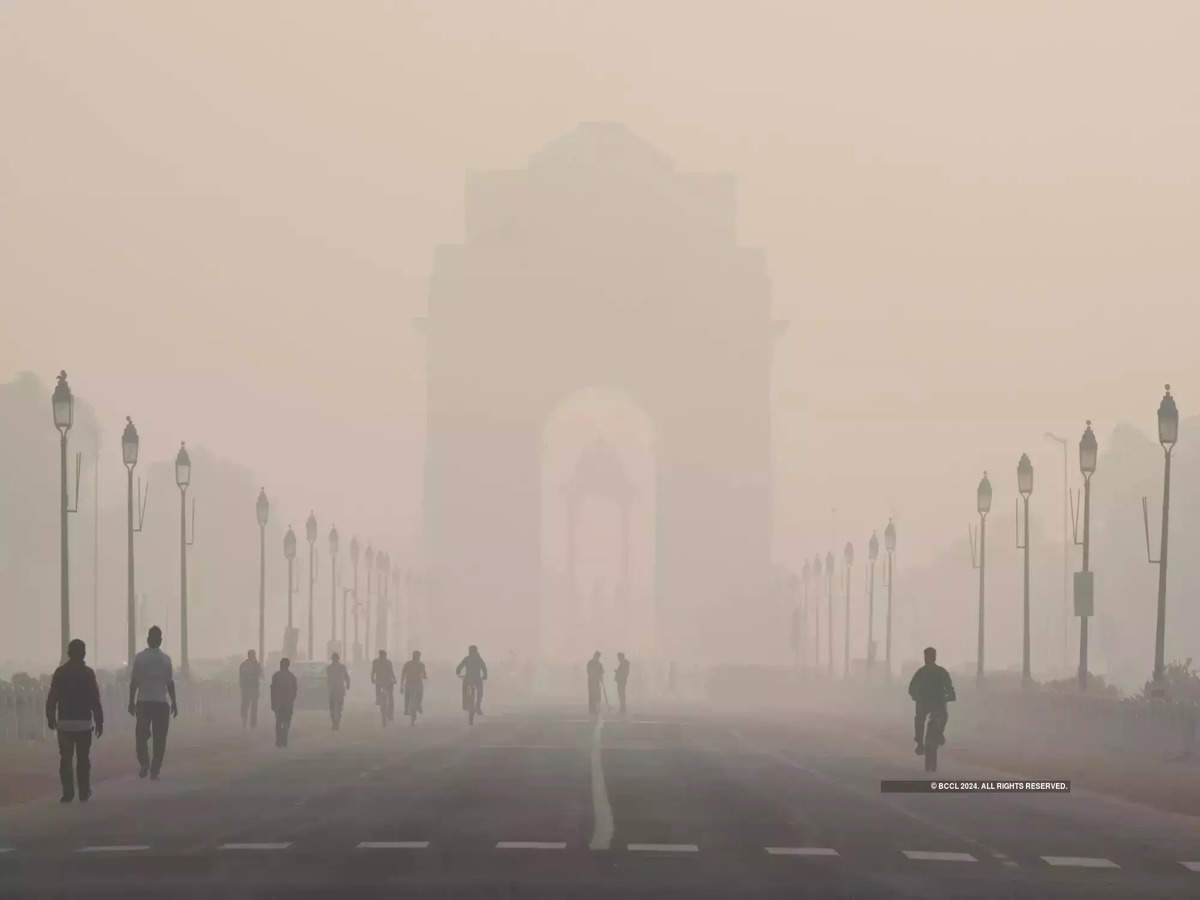
New Delhi, November 15, 2024 — The air quality in Delhi and the surrounding National Capital Region (NCR) plunged to “severe” levels, creating hazardous conditions for residents as dense smog enveloped the city. The city’s Air Quality Index (AQI) recorded levels over 400 in multiple areas, prompting the Commission for Air Quality Management (CAQM) to invoke Stage 3 of the Graded Response Action Plan (GRAP) to curb pollution. The Delhi government has announced that primary schools will shift to online classes until the air quality improves.
According to data from the Central Pollution Control Board (CPCB), AQI levels in key areas such as Anand Vihar (441), Bawana (455), Dwarka Sector 8 (444), and Jahangirpuri (458) were recorded in the severe category early on Thursday. The CAQM responded by enforcing GRAP Stage 3 restrictions, which took effect at 8:00 a.m. on Friday. These restrictions aim to reduce vehicular and industrial pollution, including a ban on BS-III petrol and BS-IV diesel vehicles in Delhi and NCR cities like Noida, Ghaziabad, and Gurugram. Violations will incur fines of ₹20,000.
GRAP-3 also prohibits construction and demolition activities, aiming to limit dust—a significant contributor to the region’s pollution. Mining-related activities have been halted, and water is being sprayed on major roads to settle airborne particles. Inter-state buses from NCR states are barred from entering Delhi, further limiting vehicle emissions in the city.
With young children being particularly vulnerable to the effects of pollution, the Delhi government announced that physical classes for primary school students would be suspended until further notice. Online learning will be the primary mode of education during this period, and educational institutions are encouraged to minimize outdoor activities for all age groups.
To mitigate disruptions caused by vehicle bans and encourage public transportation, the Delhi Metro Rail Corporation (DMRC) has increased its weekday operations. Starting Friday, DMRC will run an additional 20 trips on weekdays, supplementing the 40 extra trips already added during GRAP Stage 2. Public transport initiatives aim to reduce the number of private vehicles on the road and thus minimize pollution.
The severe air quality levels have intensified political clashes. The Bharatiya Janata Party (BJP) has criticized Delhi’s Environment Minister Gopal Rai, blaming his office for inadequate pollution control measures and demanding his resignation. Rai, in response, accused BJP-led governments in neighboring states of failing to control pollution from agricultural stubble burning, which significantly contributes to the region’s worsening AQI.
Data from the Centre’s Decision Support System for Air Quality Management indicate that vehicular emissions are the primary source of pollution in Delhi, contributing 12.2% of the total. Stubble burning from nearby states, including Punjab, Haryana, and Uttar Pradesh, also plays a critical role. Satellite data from the Indian Agricultural Research Institute (IARI) recorded 202 farm fires in Uttar Pradesh on Thursday alone, alongside five in Punjab and eleven in Haryana, adding to the region’s worsening smog.
GRAP is a regulatory framework designed to address air quality based on AQI levels. Stage 1 is for “poor” AQI (201-300), Stage 2 for “very poor” (301-400), Stage 3 for “severe” (401-450), and Stage 4 for “severe plus” (above 450). Measures escalate at each stage to curb emissions and particulate matter.
Delhi has been experiencing “very poor” air quality since late October, and AQI hit its first “severe” reading of the season on Wednesday. Authorities advise residents to minimize outdoor activities, especially vulnerable groups like children, the elderly, and individuals with respiratory issues.
The current measures aim to stabilize AQI levels, but long-term improvements require sustained inter-state cooperation and adherence to regulations. As weather conditions are likely to worsen air quality further in the coming days, authorities are closely monitoring the situation, with additional measures ready for implementation if needed.
